January 20, 2022
Co-Director emphasizes lack of penalties on Facebook’s recent missteps
New York Times
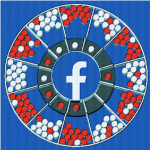
From freezing accounts of Native people, to rejecting ads that were aimed at individuals with disabilities, Facebook has struggled with making equitable judgment calls with regards to free expression and speech. TPL Co-Director Ryan Calo pointed out that “most firms that make errors face critical penalties. Facebook hardly ever does.” Calo compared the actions of […]
MoreJanuary 19, 2022
Co-Director Calo on Driver Information Collected by Automakers
Newsweek

In Newsweek, Co-Director Calo highlighted that “Some [auto] companies have begun to experiment with your affect,” he explained. “Trying to figure out if you’re tired and beginning to close your eyes. Or you’re yawning. Where you’re actually looking. Are you looking at the street? Are you looking at the console?”. He prompted a discussion regarding privacy […]
MoreJanuary 11, 2022
Tech Policy Lab Releases Biennial Report
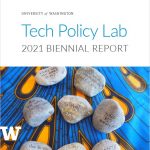
The Tech Policy Lab is please to share our 2020-2021 Biennial Report. Highlights include the Lab’s work on privacy and COVID, mitigating bias in AI systems, using storytelling to explain tech policy, and technology’s relationship to food security. http://techpolicylab.uw.edu/wp-content/uploads/2021/12/Tech-Policy-Biennial-Report-2021-Final.pdf
MoreDecember 18, 2021
TPL Co-Directors Named to Faculty Under 50 List and Featured in NYTimes Magazine on how COVID-19 Relief is Funding the Future
New York Times Magazine
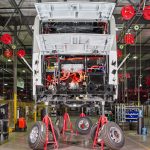
Co-Director Ryan Calo was highlighted in Brian Leiter’s Law School Reports as a Faculty under 50 on the “most cited” list. Calo was also featured in the New York Times Magazine on how Covid-19 relief is funding the future.
MoreDecember 10, 2021
Data Statements highlighted in SpeechTechMag
Speech Technology Magazine
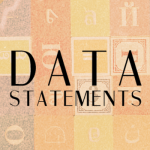
Co-Director and Professor Batya Friedman along with Faculty Associate and Professor Emily M. Bender’s recent paper titled “Data Statements for Natural Language Processing: Toward Mitigating System Bias and Enabling Better Science,” was highlighted in a natural language processing article by SpeechTechMag. It discussed AI in facial recognition systems and how data statements are key in understanding why […]
MoreNovember 9, 2021
Two Co-Directors Look Back at the 2020 Election: Data Collection, Privacy, and Misinformation
Various
As 2021 came to a close, a few pieces took a look back about what had been learned about data collection, privacy, and misinformation in the 2020 campaign. An article on the 2020 political ads looking at personal information collected and misleading information featured TPL Co-Director Tadayoshi Kohno, who highlighted the election as a historic […]
MoreNovember 2, 2021
Co-Director featured in The Verge surrounding privacy and future societal implications of technology
The Verge

Co-Director Batya Friedman identifies the need for adaptability when creating technology to address its unforeseen environmental, social, and technical impacts in The Next Privacy Crisis by Adi Robertson. “It’s very typical that developers of a technology have one kind of idea about what its uptake in society might be, and then the actual uptake turns out […]
MoreOctober 27, 2021
Co-Director Urges for Better Transparency of Driver Data & Privacy
Newsweek
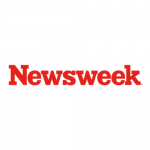
In an article with Newsweek, TPL Co-Director Ryan Calo participates in the current conversations surrounding driver data privacy. According to the article, cars have begun to collect immense amounts of data on their drivers. Unbeknownst to these drivers, their data is being sold to third parties like insurance companies to ‘tailor services to the average […]
MoreOctober 7, 2021
TPL Faculty Associate Franzi Roesner honored by NSF and Consumer Reports
Allen School News
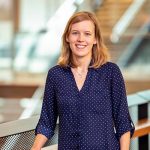
TPL Faculty Associate Franzi Roesner was recently honored by NSF and Consumer Reports. Roesner earned a Consumer Reports Advocacy Digital Lab Fellowship to advance research into the spread of problematic online ad content to support more positive digital experiences for everyone. Together with Allen School colleague Amy Zhang, Roesner won an NSF Convergence Accelerator for […]
MoreSeptember 24, 2021
Co-Director and Faculty Associate awarded with 2021 Towards Trustworthy Products in AR, VR, and Smart Devices RFP
Facebook Research

TPL Co-Director Tadayoshi Kohno and Associate Faculty Franziska Roesner were winners of the 2021 Towards Trustworthy Products in AR, VR, and Smart Devices request for proposals launched by Facebook. The pair submitted a high-quality proposal related to secure multi-application augmented and virtual reality platforms.
Article